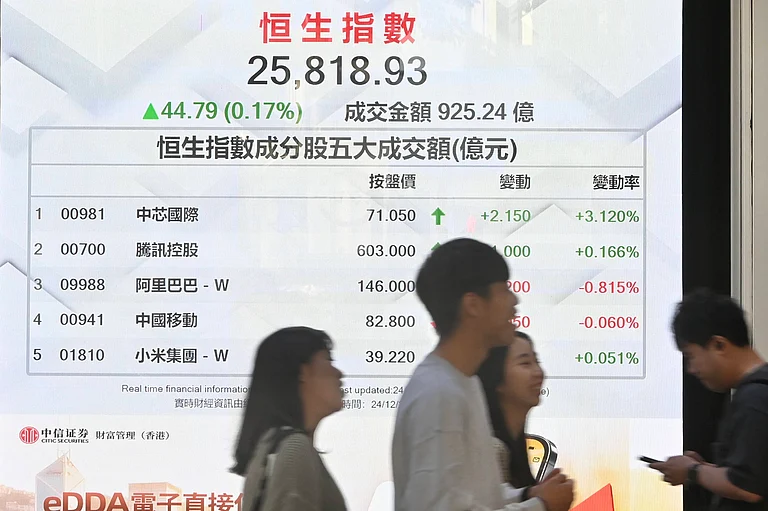This year’s Singles' Day shopping festival, usually known for its massive discounts and consumer excitement, seemed to fall flat as both merchants and shoppers were less enthusiastic. Started by Alibaba on November 11, the event has grown to include other platforms like JD.com and Pinduoduo in China and internationally. Once a one-day event, the festival now stretches over weeks to boost sales.
Singles' Day has typically been a measure of China’s consumer sentiment. But with a weak economy impacted by real estate struggles and deflation, Chinese shoppers are holding back this year. Beijing fitness center owner Wang Haihua only bought a few daily essentials, saying prices don’t feel much cheaper than usual. “They're all tricks we’ve seen through over the years,” Wang noted.
Similarly, Xi’an barber Zhang Jiewei, who used to splurge during the festival, said he stopped buying after the pandemic cut his income. He no longer trusts the discounts, feeling that merchants sometimes hike prices before offering “discounts.”
Experts point out that government stimulus efforts have done little to improve consumer confidence. Shaun Rein, founder of the China Market Research Group, commented that “people are not interested in spending and are cutting back on big-ticket items.” Rein expects slow growth for Singles' Day, with cautious consumers looking ahead to challenging times. Some categories, like sportswear, are still doing well as customers opt for more affordable options.
In the past, platforms like JD.com and Alibaba would publish sales totals for Singles' Day, often showing double-digit growth. But these companies have since stopped sharing numbers publicly. Last year, data provider Syntun estimated that overall sales grew just 2%, a stark contrast to the high growth rates before COVID-19.
For many merchants, the rising costs of participating in Singles' Day promotions no longer pay off. Zhao Gao, who owns a garment factory, said after paying advertising fees, he barely breaks even. “The platforms have so many rules, and customers are more skeptical,” Zhao explained, adding that he no longer participates in the event.
Another merchant, Du Baonian, who processes mutton in Inner Mongolia, noted a 15% drop in sales over the past year. Although he still participates in Singles' Day, the high expenses rarely result in good returns due to low consumer spending.
To counter slowing domestic sales, e-commerce platforms are now looking abroad for growth. Alibaba, for instance, reported that 70,000 merchants saw sales double through global free shipping offers. The strategy has drawn in new customers in markets like Singapore and Hong Kong, helping to boost sales despite a sluggish home market.
(This story has been slightly reworked from an auto-generated PTI feed.)


























